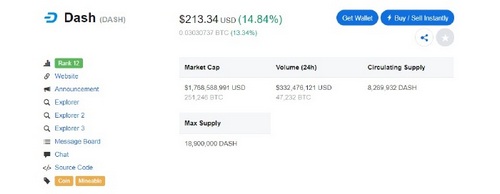Awarded Tuesday by the U.S. Patent and Trademark Office, the patent describes a «system and method for managing transactions in dynamic digital documents» that would provide companies with a shared distributed ledger to supply relevant parties with the same immutable data record.
Enterprise software vendor R3 has won a patent for a blockchain-based record system designed to make corporate information-sharing more efficient.
The award comes just over a week after R3 received another patent, that one for a new decentralized payments system that doesn’t have to use a blockchain. Awarded Dec. 31, R3 claims its protocol could facilitate more complex payments that require parties to confirm identities or meet certain legal requirements.
It isn’t clear whether the new record-sharing system would be an independent protocol or integrated with R3’s existing Corda blockchain. In December the company completed a trial, the largest of its kind, that tested Corda’s trade finance applications together with more than 70 companies from around the world.
Typically, companies keep their own records of agreements and positions struck with other entities. While this duplication provides them with a secure store of data, R3 claims in its patent filing the current system can create slight disparities that cause miscommunications, unfulfilled promises and legal disputes.
R3’s patented system, which is built on a private blockchain, could replicate «every transaction to ensure all parties with access to the ledger, but not necessarily involved in any one transaction, have current and immutable information». According to the patent, which was originally filed in August 2016, that could address some of the inefficiencies and operational risks associated with legacy record systems.

The patent also details how the new system could be used to share a ratified agreement, made accessible to both signatories, that can automatically update records with amendments or include new records for appropriate parties. It can be used to record relevant workflow without a third party who is trusted to ensure all parties receive the exact same information at the right time, R3 says.
The filing lists R3 technologists Richard Gendal Brown, Mike Hearn and James Carlyle as the system’s inventors.
Blockchain Used by Budweiser Owner InBev to Help African Farmers
AB InBev, the company behind the Budweiser brand, is helping local African farmers to prove their income using blockchain, Yahoo Finance reports on Jan. 21. A blockchain-based system developed in partnership with BanQu tracks all the local suppliers of AB InBev, replacing the paper trail.
AB InBev is a multinational conglomerate born out of the merger of several established beer producers. It includes Budweiser, Stella Artois and Corona as some of its most recognizable brands.
The company has adopted a strategy of using local suppliers, receiving tax breaks for their added contribution to the country’s economy. However, this proved to be more challenging in Africa, a continent where banking infrastructure remains underdeveloped and paper documents are difficult to obtain for rural farmers.
Partnering with BanQu, a company specializing in blockchain supply chain solutions, AB InBev introduced a distributed ledger system that tracks all the local farmers that supply barley and malt to the company. This allows them to prove their income to local banks, and thus open bank accounts and lines of credit.
The CEO of AB InBev, Carlos Brito, explained at the World Economic Forum in Davos:
“And now this farmer, who was never bankable – because she couldn’t prove income of any source, had no reports, or material or paperwork – now in a flip phone, she has in the blockchain proof that she is a supplier to AB InBev, a global company.”
Access to banking allows the local farmers to finance more efficient farming tools, increasing their yields and receiving more money. The system also helps to curtail corruption introduced by middlemen who consolidated the shipments to the breweries.
Brito noted that they were “not necessarily passing the money we were paying to him or her to the farmer.” A tamper-proof blockchain system ensures that the farmers are able to prove what they are owed. Brito further elaborated on the benefits of the system:
“They become commercial farmers and everybody wins. Consumers are safer and we create more formal jobs. The government collects taxes. Instead of sending the money to Europe, or Australia, or Canada buying barley or malt, we keep the money there.”
The BanQu product has reportedly been implemented with thousands of farmers across Uganda and also India.
Uganda is one African country where blockchain is taking hold. Binance opened a local branch in 2018, though the country’s central bank remains skeptical of decentralized cryptocurrencies.
Crypto-based Ponzi schemes are also present, with the Dunamiscoins pyramid recently defrauding over 10,000 users for $2.5 million.

